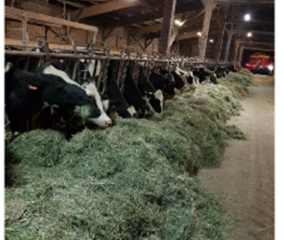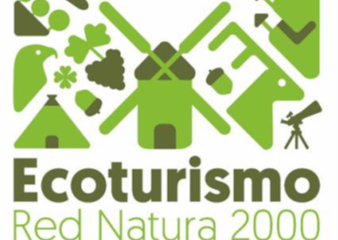CIRCLE
Luxembourg
Introduction
The CIRCLE project brought together stakeholders from 4 LEADER regions from Finland, Sweden and Luxembourg to enable a simplification of the circular economy concept into practical application. The project provided learning and qualification activities for private and public decision-makers and consumers, matchmaking between SMEs in complementary sectors to learn from one another during exchanges and study visits, as well as concrete counselling of firms on how to render their production cycles more circular. Circular economy is well known as concept; however, there are only few concrete examples of its successful implementation going beyond recycling. Competence development, new knowledge and exchanges are suitable means to break down the complex concept in applied terms and lead to tangible improvements in the 3 pillars of the sustainability model, to foster environmental, social or economic transition. By this, the project induced lasting change in the minds of SMEs, public decision-makers and consumers through adapted activities. A shared language and a consensus about circular economy present the project’s primary impact, while through LEADER an alignment of the strengths of engaged stakeholders has been achieved to generate a collective outcome that is greater than the sum of its parts.
Presentation of the project
The project CIRCLE, implemented from March 2020 to October 2023, operationalised the concept of circular economy for SMEs, citizens and municipalities across 4 LEADER regions. The cooperation project, implemented by the Natur- & Geopark Mëllerdall from Luxembourg in cooperation with the LEADER regions Kanti (Finland), Skanes Ess and Sydöstra Skåne (Sweden), managed to bring relevant stakeholders together to foster a better understanding of approaches and potentials to work on the rollout of the economy of the future. The concept of circular economy is broadly discussed across Europe. A large knowledge base exists, informing about many of the conceptual elements of circular economy. However, for practical elements the knowledge base is limited to a few examples that go beyond recycle, partially due to the many potentials of circular economy in comparison to the established linear economy. Many stakeholders seeking to innovate to create a positive impact shelve their projects because of difficulties to translate the concept in concrete action in the fields of transport, energy, material transformation, packaging, etc. As consequence, only a small share of investments of Luxembourg businesses go towards circular economy projects. Consumers feel confused and municipalities do not know how to support a circular economy. Many potentials remain unused, obstructing positive change to the sustainability models’ economic pillar. The CIRCLE project supported the simplification of the circular economy concept to provide answers to concrete problems, through advice and networking and hence provided learning opportunities. In conjunction with project visits, the activities contributed to the creation of new knowledge, networks and the development of capacities in the field across the four LEADER regions. In a first phase, regional stakeholders in the field of circular economy were informed about the planned project activities. The far-reaching contacts of the Natur- & Geopark and the LEADER region were used to get connected with national stakeholders and SMEs, increasing the visibility of the region in relation with the subject. 8 interested SMEs benefitted from analysis of their production cycles and a tailor-made counselling about potentials towards a circular economy, resulting in 20 concrete recommendations. Additionally, municipalities of the region were informed about potentials of a circular economy, underlining the impact public decisions can have. Additionally, all inhabitants from the region, which are a strong leveraging agent of change through consumer choices, were informed with an information brochure about circular economy.
The cooperation element of the project managed to engage stakeholders for exchanges. Matchmaking between complementary SMEs of the 4 participating LEADER regions allowed for mutual learning during the visits to good practice projects, conferences and webinars. Cooperation between SMEs lasts on after closure of the project activities. A brochure informs on best practice examples, providing ideas and guidance to interested SMEs. LEADER played a crucial role in the project through the far-reaching network, the opportunity to fund ‘soft’ sensibilisation activities and the support provided through the LAG office for the activity preparation. LEADER facilitated an alignment of the strengths of engaged stakeholders to generate a collective outcome that is greater than the sum of its parts.
Emblematic character of the project
In contrast to the linear economy, circular economy provides many advantages as a switch can enable positive impacts on the environment and create long-lasting social and economic value. Therefore, it is a concept of the future that can be understood as transversal, referring to all objectives of the Mëllerdall region local development strategy. The project impact contributes to making SMEs more fit for the future. Many firms are facing challenges and wish to innovate, enabling them to reduce their ecologic footprint while creating a positive impact. The networking and counselling activities provided learning opportunities for private decision-makers facilitating and accelerating the economic transition towards a more circular economic model in the future. In view of the many ambiguities, the project contributed for the most part to the creation of a shared language and consensus about the circular economy, eventually establishing the circular economy in the minds of SMEs, private and public decision-makers to further the recycling concept. The starting phase of the networking activities coincided with the start of the Covid pandemic in 2020. Consequentially, the project had to be adjusted dramatically to allow the planned activities to take place. Despite this, project stakeholders and the LEADER management have demonstrated high flexibility and organised most activities online when travel was not possible. This has enabled the project to achieve its planned objectives in spite of encountered difficulties. As the cooperation element presented a central pillar in the project, its approach and benefits have already been implemented in all 4 participating LEADER regions. The approach of creating lasting learning activities through exchanges and visits is part of the LEADER DNA; the project activities can hence be transferred to other LAGs. The information material is freely available, providing inspiration and advice for SMEs and consumers beyond the regional borders of the LAGs.
Pictures

Good practice booklet, created in the framework of the project, CIRCLE LEADER project 2023

Brochure informing inhabitants about circular economy in Luxembourg distributed to all households in the Mëllerdall region, CIRCLE LEADER project 2023









Nature- & Geopark Mëllerdall (Natur- & Geopark Mëllerdall in Luxembourgish)
LEADER Regioun Mëllerdall
Luxembourg

